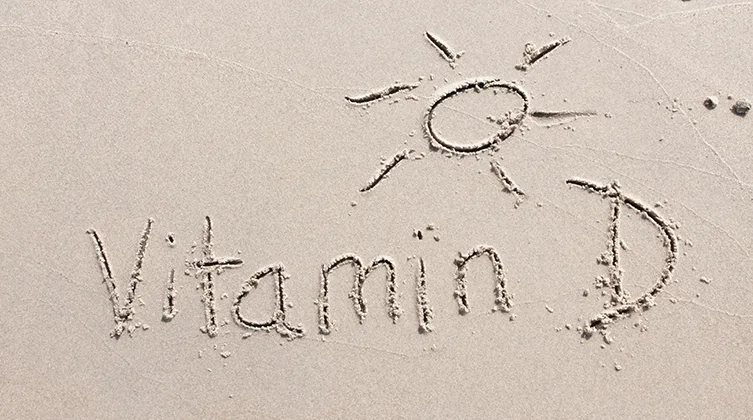As a nutrition scientist, I frequently get asked about vitamin D and what are the best dietary sources. There appears to be much confusion about this sunshine vitamin.
In Australia, one-fourth of adults are Vitamin D deficient. However, levels can differ vastly depending on the season. That’s because sunshine is indeed the best source of Vitamin D!
Approximately 90% of our body’s vitamin D is obtained through the skin. The skin is able to synthesize vitamin D using ultraviolet light from the sun and a precursor molecule that is similar to cholesterol. During the winter months we are usually covered up with less sun exposure and our vitamin D levels begin to decline.
Vitamin D in food
During this time it is even more important to boost our dietary intake of vitamin D. Unfortunately, very few foods are rich sources of vitamin D.
Try including; wild oily fish, like salmon, mackerel or sardines, mushrooms, organic butter and eggs (you must include the egg yolk!). Also, try and spend some time out in the sun. Exercise outdoors is a great way to keep warm while soaking up the sunshine vitamin.
Why is vitamin D important for health
The active form of Vitamin D, 1,25-dihydroxyvitamin D (calcitriol), is actually a hormone. It plays an important role in balancing calcium levels and maintaining bone health. Calcitriol enhances the absorption of calcium from the small intestine, as well as diminishes its excretion in the kidneys. Adequate vitamin D and calcium intake throughout life, as part of a well-balanced diet and healthy sun exposure, may reduce the risk of osteoporosis (reduced bone density) and osteomalacia (soft and flexible bones).
Low vitamin D levels have also been linked with depression or low mood, the development of diabetes, certain cancers, heart disease, multiple sclerosis and susceptibility to infections. Vitamin D promotes a healthy immune system, supports the brain and nervous system, pancreas, skin, muscles, cartilage and cardiovascular health.
If you are concerned about your vitamin D levels, you can talk to your doctor about a blood test or see a nutritionist for a diet and lifestyle assessment and advice on supplementation.





